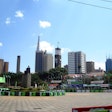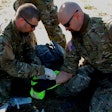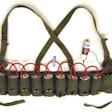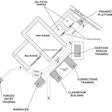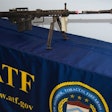Last week's column discussed a Mumbai-type terror attack on Anytown, USA. This week, let's discuss our response. I'll ask you to visualize your own jurisdiction, including likely terror targets, along with your agency's capabilities on a normal midweek evening. Then, picture yourself on duty or on call in your normal assignment, whether that is patrol, SWAT, or other.
Now, picture a similar scenario as it unfolded in Mumbai, with 10 heavily armed, well-equipped, and highly trained committed terrorists are about to launch their deadly attack on your town.
In Mumbai, the terrorists used stealth to move into position and then struck with total surprise against their unsuspecting victims. Surprise turned to shock as the terrorists mowed down their victims with astonishing speed.
This is the same stealth, surprise, shock and speed the terrorists who attack your town will employ against you. Seventeen officers were murdered in Mumbai, including three in a van racing to respond to multiple reports of shootings. One of the victims was a courageous officer who, alone, took on the two terrorists who attacked the railroad depot.
Now picture yourself as a first responder, working a one- or two-officer car. You have your body armor, your patrol rifle and/or shotgun, extra ammo, first aid supplies in your go bag, and your radio. You've rehearsed your response a thousand times in your mind, and now it's for real. You stop far enough away to avoid becoming a victim yourself, and deploy on foot toward the sound of the gunfire and explosions - as you've been trained to do. Now, you come under intense fire because terrorists train to take out responding police who would interrupt their deadly mission.
Simultaneously, your fellow officers in other locations find themselves under the same intense terrorist fire as you. Dispatch broadcasts that SWAT is en route, as are all cars in your jurisdiction and mutual aid area. The initial surprise and shock have now turned to chaos and confusion as five police vs. terrorist gun battles are underway simultaneously in different locations of your city.
Now, picture yourself as SWAT responding to these chaotic, multi-location gun battles in progress. Which location(s) do you deploy to first? With how many personnel? Where will your Armored Vehicle deploy (if you have an AV)? How and where will you deploy your counter-snipers?
What if terrorists have their own snipers and/or armed lookouts to disrupt police and SWAT response?
These and countless additional considerations and developments will be occurring with incomprehensible speed in what's commonly referred to as the fog of war. This is classic urban guerilla combat—it's no different from Iraq or Afghanistan, except on a smaller scale. As police, you have one hand tied behind your back, because unlike the military, you can't call in artillery or air strikes.
Now what? I'm an advocate of concentrating our strength against opponents' weaknesses. SWAT's real strength is working together as one, overwhelming opponents. In this situation, the terrorists have done us a favor by dividing their forces, resulting in weakening individual teams.
SWAT needs to exploit this advantage by hitting opponents with everything we have, as hard and fast as possible. Two results will likely occur: The terrorists will be distracted from killing innocents and SWAT will neutralize the terrorists, then moving on to the next location and start all over again.
Depending on the size of your jurisdiction's resources, SWAT may be capable of multiple simultaneous operations or may only be capable of one at a time. Most larger cities have more resources, including larger SWAT teams. As such, they need to prepare and train for multiple, simultaneous terror strikes, as seen in Mumbai.
At the same time, no two terror attacks will ever be exactly the same and will depend on the unique qualities of each situation and location. The Mumbai terror attack was effective in its simplicity and time-proven urban guerilla warfare tactics. If success breeds more success, then who's to say another "Mumbai" can't or won't occur elsewhere?
Mumbai is a "shot heard round the world." It's a clear warning to law enforcement of what's headed our way sooner or later. The real question is will we or won't we be ready?
We need to start with realistically analyzing ourselves and our teams. We need to know our strengths and our weaknesses and eliminate our weaknesses. From tactics to weaponry and equipment, it's our responsibility, even if our agencies don't share our sense of urgency or need.
That's because "they" won't be the ones responding. It will be us. Mumbai serves as a warning to law enforcement of what very probably is headed our way. The success of Mumbai will very likely spawn imitators, the highest form of flattery. The real question is now that we've been warned will we be ready?
I'm reminded of the following wise and true saying: "When you aren't practicing, somewhere, someone else is, and when you meet him, he will win."
Related:
Mumbai: What Law Enforcement Learned








